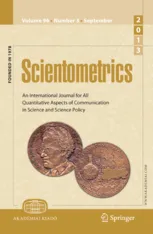This study sheds light on the unexplored phenomenon of multiple institutional affiliations using scientific publications. Institutional affiliations are important in the organisation and governance of science. Multiple affiliations may alter the traditional framework of academic employment and careers and may require a reappraisal of institutional assessment based on research outcomes of affiliated staff. Results for authors in three major science and technology nations (Germany, Japan and the UK) and in three fields (biology, chemistry, and engineering) show that multiple affiliations have at least doubled over the past few years. The analysis proposes three major types of multiple affiliations that depend on the structure of the research sector and its international openness. Highly internationalised and higher education-centred affiliations are most common for researchers in the UK whereas Germany and Japan have stronger cross-sector affiliation patterns. International multiple affiliations are, however, still more common in Germany compared to Japan which is characterised by a domestic, cross-sector affiliation distribution. Moreover, multiple affiliation authors are more often found on high impact papers, particularly in the case of authors from Japan and Germany in the fields of biology and chemistry.
